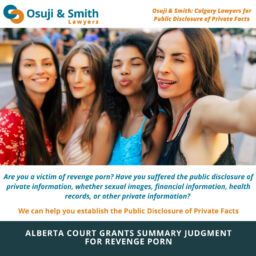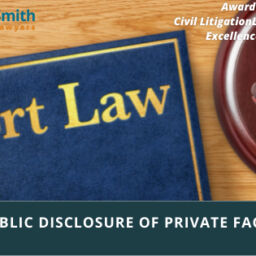There has been an uprise in tort cases – if you’re not aware, you might also fall into one! In most cases, tort laws can be confusing. There are a lot of ways in which you might fall into such a case, and it’s important for you to steer clear out of such claims. Occasionally, you might find yourself in a situation where you’re accused of a tort law breach that you aren’t responsible for.
There have been instances where giant corporations like McDonald’s have fallen into unintentional tort cases; these have led to millions of dollars’ worth of lawsuit! This indicates how intricate tort law cases can be; you ought to have a clear understanding of the law to steer clear of any possible mishaps!
Tort Laws: What Is It?
Tort law is defined to be ‘an area of law which deals with the wrongful actions of an individual or an entity that causes injury or harm to another individual’s or entity’s person, property, or reputation and which can entitle the injured party to compensate for the damage done.

To simplify, a tort is any intentional or unintentional civil wrongdoings that cause someone else to suffer loss or harm. This might result in legal liability for the person committing the tortious act. The person or entity suffering from the damage can seek compensation from the accused person or entity through standard court procedural.
In such tort cases, legal injuries are not limited to just physical injuries. These may include emotional, economic or reputational injuries, as well as violations of privacy, property, personal or constitutional rights.
The compensation for torts can take form in:
- Reimbursement for the property loss or property damage
- Medical expenses
- Pain and suffering compensation
- Loss of earning capacity
- Punitive damages
Types of Torts
There are a number of specific types of torts that are included in the constitution in Canada. The most common types of torts are:
- Assault
- Battery
- Negligence
- Trespass
- Product Liability
Now, the tort laws can be divided into three general categories. These are:
- Intentional Torts – Causing someone else harms or damage by a deliberate act or desperate attempts knowing the laws.
- Negligent Torts – Causing someone else harms or damage through some negligent act. Such acts could’ve been avoided, but these aren’t due to negligence by the party at fault.
- Strict Liability Torts – This is when a harm or damage is inflicted due to the actions of the individual or entity at fault; however, there is no supportive evidence for this claim.
There are some other torts, which are:
- Defamation Torts
- Nuisance Torts
- Privacy Torts
- Economic Torts
Intentional Torts
Whenever an individual or entity inflicts harm or damage to another individual or entity knowingly, it is referred to as intentional torts. This can include interfering with an individual’s safety, emotional tranquility, privacy, freedom from deception, control over property and/or freedom from confinement.
Most commonly, intentional torts will include cases such as false imprisonment, invasion of privacy, theft, assault, battery, property damage, fraud or trespassing.
For such cases, the plaintiff must prove that the wrongdoings of the accused included an intentional action, which the individual or entity knew could cause harm. Occasionally, such intentional tort may be subjected to criminal offenses.
Tort of Negligence
Whenever a tort is done without intention, it is referred to as negligent torts. There are three specific elements that one must ensure in a claim of negligence. These are:
- The defendant should have a duty or should owe a service to the plaintiff
- The defendant must have failed to complete the duty, violated a promise or obligation to the plaintiff
- The plaintiff must have suffered loss, injury or damages that were caused directly due to the accused person’s action.
Once these elements are checked, one can claim that a person has committed a tort of negligence and can file a tort lawsuit against the accused.
Strict Liability Torts
Strict liability torts are the torts that are imposed due to liability on a defendant. In simpler terms, it means that someone failed to meet certain standards and the action may cause harm in the long run if not acknowledged. In most cases, such legal tort laws are imposed on manufacturers so that they regulate their activities to meet certain standards.
Such tort cases may include transportation and storage of hazardous substances, blasting in a populated area and keeping certain wild animals in captivity. These tort cases ensure that the proper precautions are taken to ensure public safety.
Filing A Claim Under The Tort Laws
Whenever a person sues an individual or an entity under the Tort laws, the person usually applies for a compensation. This is generally referred to as ‘awards’ to the damages.
In the constitutional law, such damages are awards that are paid to the plaintiff as a compensation for a loss or injury. The damages are classified into two:
- Compensatory Damages
- Punitive Damages
In most cases, punitive damages are awarded to reform or deter the plaintiff from pursuing a course of action against the accused. Punitive damages can be awarded where the defendant acted in tort of negligence, malicious or grossly reckless manner.

Stuck In A Tort Case? Consult With A Lawyer!
So, what if you’re stuck in a tort case that you haven’t committed. Alternatively, you might want to file a tort case against another individual or entity. It is highly advisable that you talk to a civil litigation lawyer Calgary before taking further steps.
You must also be aware of the tort laws and should be able to identify tort of negligence, intentional torts or strict liability torts. It’s not a big deal if you can’t recognize each torts; the best civil litigation lawyers can help you figure them out.
So, why wait? Undermine the tort you’re facing or accusing of, and talk to a lawyer to know of the next steps. You surely will get the justice you deserve!




